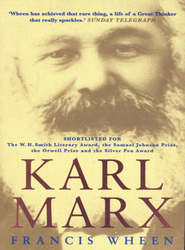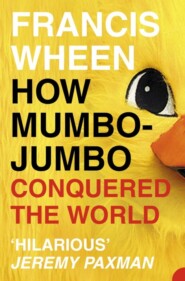По всем вопросам обращайтесь на: info@litportal.ru
(©) 2003-2024.
✖
Strange Days Indeed: The Golden Age of Paranoia
Настройки чтения
Размер шрифта
Высота строк
Поля
As for the unionists, despite their protestations of loyalty to Queen and country they seemed just as alien, with their bowler hats and Orange Lodges and Apprentice Boys’ marches. Gun-waving, balaclava-wearing Protestant paramilitaries from groups such as the UDA looked much like the IRA, and every bit as bloodthirsty. Their language, too, was from another planet – demotic and demagogic, with no trace of English understatement. In the pulpit of his Martyrs’ Memorial Church, the Rev. Ian Paisley occasionally interrupted his thunderous tirades against ‘the Antichrist’ (the Pope) and ‘the devil’s buttermilk’ (alcohol) to proclaim the virtues of the circumcised – ‘pronouncing each syllable,’ a visitor noted, ‘with a measured and sibilant relish, shircumshished, while his women worshippers shuddered beneath their hats and silently groaned at his repeated references to the male organ’.
If Ulster Protestants and Catholics wished to pursue their ancient grievances by killing one another, why worry? Let them fight it out, while the uncomprehending English contented themselves with watching the edited highlights – youths throwing petrol bombs, troops firing rubber bullets – on the evening news. Few of them knew, or wished to find out, what might have caused these pyrotechnics; and the authorities were happy for them to remain in ignorance. When the Sunday Times reported that British soldiers had tortured republican internees, in October 1971, ministers advised broadcasters to leave the story alone. The Independent Television Authority banned a World in Action documentary a couple of weeks later on the grounds that it was ‘aiding and abetting the enemy’. If the torture victims were IRA members, their voices should not be heard. ‘The soldier or the policeman who never knows where the next shot will come from deserves support in a hazardous and desperately difficult task,’ the Daily Express commented. ‘The snide remark which undermines his morale is almost as bad as the sniper’s bullet.’ Even if the snide remark exposes illegal behaviour by soldiers of the Crown? Yes indeed. ‘As far as I’m concerned,’ said the ITA chairman, Lord Aylestone, ‘Britain is at war with the IRA in Ulster and the IRA will get no more coverage than the Nazis would have done in the last war.’ His BBC counterpart, Lord Hill, assured ministers that ‘as between the British army and the gunmen, the BBC is not and cannot be impartial’.
Many viewers probably shared the sentiment, when it was put like that. But how could television reporters explain the conflict if they were forbidden to say – even in the most impartial style – what motivated the gunmen? As the Tory journalist Peregrine Worsthorne pointed out in the Sunday Telegraph, ‘patriotic censorship’ might be acceptable when there was a national consensus, as in World War II, but that didn’t apply to Northern Ireland in the 1970s: an opinion poll in September 1971 showed that 59 per cent of Britons wanted the troops brought home. ‘There is no patriotic line to cling to, no national ethos governing what should be said or done,’ Worsthorne wrote. ‘Against this confused background only one point stands out with absolute clarity: no form of political censorship, either overt or covert, is either desirable or even possible, since any attempt to apply pressure on the media will have exactly the opposite effect from that desired.’ Just so: when the BBC banned Paul McCartney’s song ‘Give Ireland Back to the Irish’ soon afterwards, I went out and bought it immediately in a spirit of anti-authoritarian solidarity, blowing several weeks’ worth of pocket money. Alas, it turned out to be ghastly doggerel – ‘Give Ireland back to the Irish,/Don’t make them have to take it away./Give Ireland back to the Irish,/Make Ireland Irish today’ – sung to a plinky-plonk nursery-rhyme tune. If only the BBC had allowed me to hear it on the radio first, I’d have saved myself ten shillings. Such is the price of censorship.
(#litres_trial_promo)
Although English listeners were spared the ex-Beatle’s political analysis (‘Great Britain, you are tremendous/And nobody knows like me./But tell me, what are you doing/in that land across the sea?’), English politicians could no longer shut their ears to the explosive din from across the sea. Even Ted Heath eventually decided that he ought to talk, and listen, to the Provos. His Northern Ireland Secretary, Willie Whitelaw, held a secret meeting at a house in Chelsea on 7 July 1972 with six leaders of the Provisional IRA, including two young hardliners – Gerry Adams, who was released from Long Kesh internment camp to attend the conference, and Martin McGuinness, the Provisional commander in Derry. (Before McGuinness set off for London, aboard an RAF plane, he insisted that two officers from British military intelligence be handed over to the IRA in Derry as a guarantee of his safe return.) The Provisional delegation made demands which they must have known Whitelaw couldn’t accept: a public declaration of British intent to withdraw from Northern Ireland, an immediate amnesty for all IRA prisoners and the removal of all troops by January 1975. Any prospect of further negotiations was shattered two days later when a riot erupted in the Lenadoon area of West Belfast, where the Housing Executive had been relocating displaced Catholics, to the fury of local Protestants. It swiftly turned into a gun battle between armed Provisionals and British soldiers. The brief truce had ended: this was now all-out war. The army launched ‘Operation Motorman’, a massive onslaught which destroyed the republican ‘no-go areas’ in Belfast and Derry; the IRA bombed the heart out of Belfast’s city centre, killing nine people and injuring dozens more; Protestant murder squads retaliated by slaughtering scores of randomly chosen Catholics. By the end of 1972 the year’s death toll from violence was 467, the highest at any time during the Troubles. But was it enough? Meeting in Dublin that December, the Provisional IRA army council agreed that Heath might tolerate even this level of violence rather than resume negotiations – as long as the carnage was confined to Northern Ireland. But would he be so stubborn if they took the fight to England? ‘If there was one thing that fixed the minds of the Brits in dealing with us it was the bombing campaign in England,’ a senior IRA man told the Northern Irish historian Martin Dillon years later, after the signing of the Anglo-Irish agreement. ‘We knew they could continue to have an acceptable level of violence in the North, but when it was killing people on their soil it concentrated the mind wonderfully in seeking a deal with us. We were politically naïve at the time. We demanded too much, but we learned from that.’
Вы ознакомились с фрагментом книги.
Приобретайте полный текст книги у нашего партнера:
Приобретайте полный текст книги у нашего партнера:







